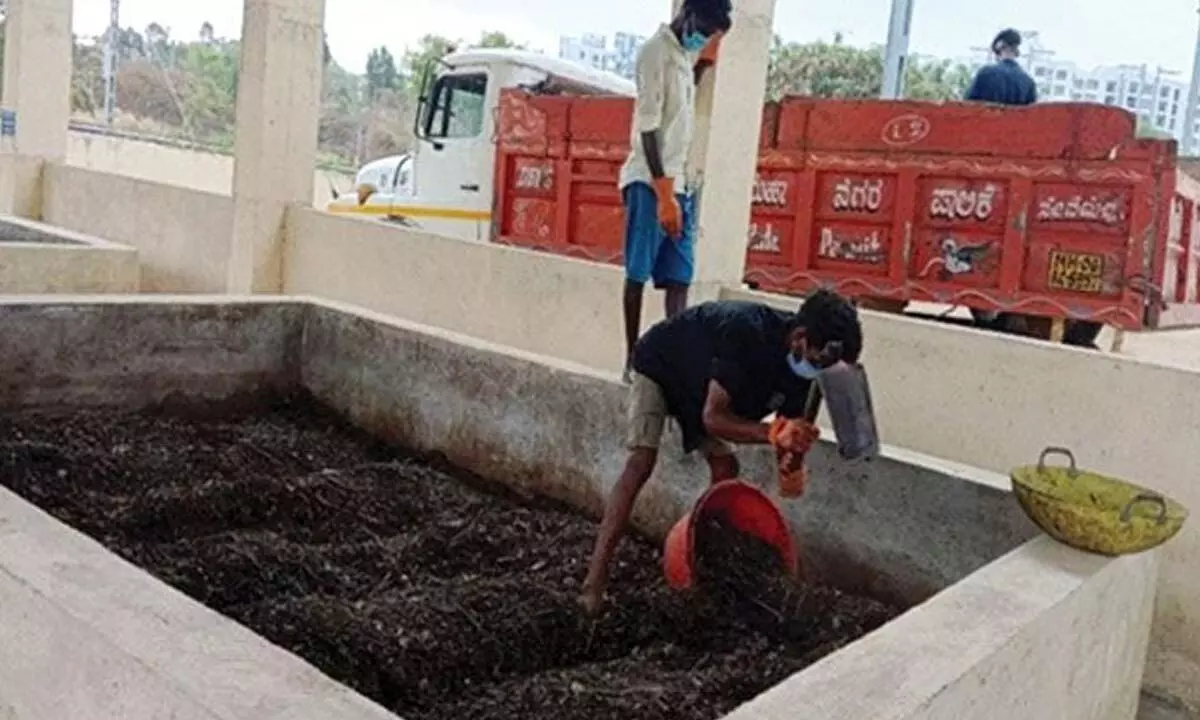South Western Railway makes headway in solid waste management

South Western Railway makes headway in solid waste management
As part of environment-friendly initiative, Bengaluru Division of South Western Railway (SWR) has undertaken solid waste management effectively.
Bengaluru: As part of environment-friendly initiative, Bengaluru Division of South Western Railway (SWR) has undertaken solid waste management effectively. The Bruhat Bengaluru Mahanagara Palike (BBMP) has classified railways as bulk generator and has stipulated guidelines for bulk generators to deal with waste disposal.
The division handles two types of waste -- the municipal solid waste generated in households of railway colonies and road litter and biomedical waste generated at railway hospitals and health units. The division has contract in place for disposal of municipal waste.
There are 826 quarters in Bengaluru city, 460 in Bengaluru Cantonment and 300 in Yesvantpur. The garbage collected door-to-door from these houses is being segregated into three different bins placed in the mechanized carrier and transported to the garbage processing centre.
Dry waste is further segregated into bio-degradable and non-bio-degradable waste. The wet waste and bio-degradable waste is further processed and sent to vermi-compost centres situated in the colonies. The non-bio-degradable waste is handed over to authorized BBMP empanelled dry waste collector.
The composting plant in Bengaluru processes about 40 tonnes of compost per month and the plants at Bengaluru Cantonment and Yesvantpur 15 tonnes each. Presently, the compost is being supplied to outside agencies. There is also a proposal to supply the compost to the residents of the colonies.
The vermi-composting plant consist of pits where the segregated degradable waste is moistened with water. Slurry of cow dung is sprinkled over the waste. The wet mix is given turns once in five days for three to four weeks. Half kg of earthworms (Endrilus eugeniae, Eisenia fetida, Peronyx excavates) put into tanks. Earthworms start feeding on the waste mix as they move downwards. After 45 to 60 days final compost product will be collected.










